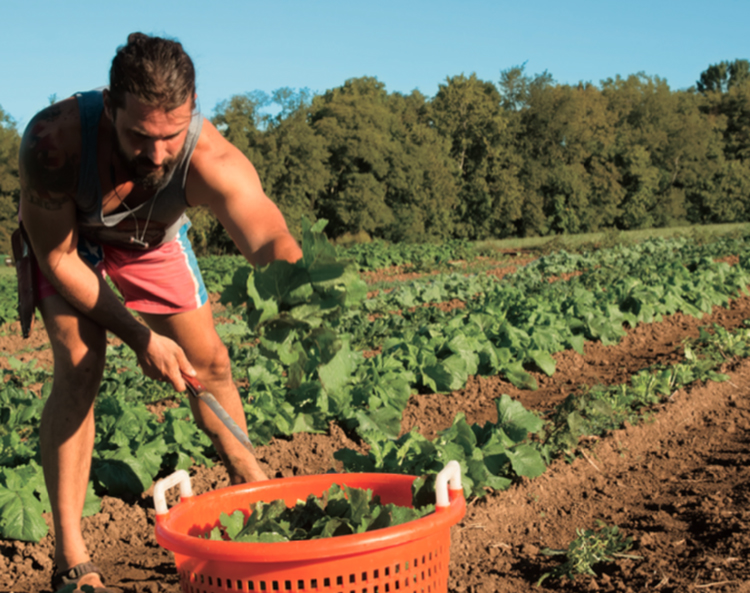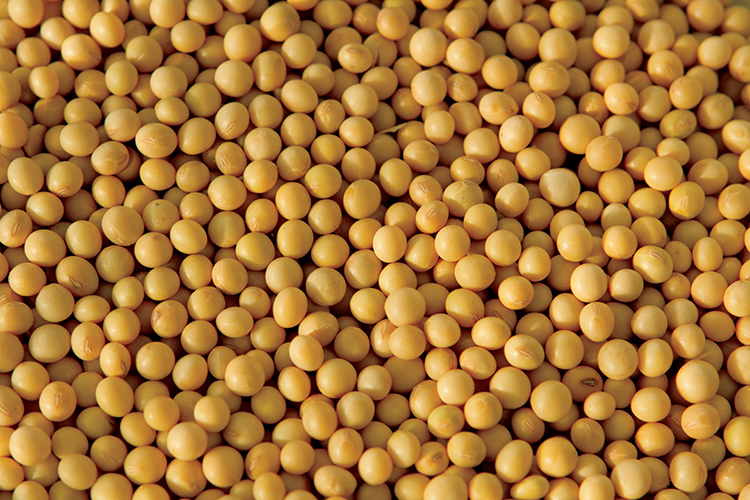Home > Tennessee > Tennessee Crops & Livestock > Tennessee Agriculture is all in a Day’s Work
Tennessee Agriculture is all in a Day’s Work
In partnership with: Tennessee Department of Agriculture

Day in and day out, Tennessee farmers go to work, growing an abundance of crops for food, producing fibers for clothes, allowing consumers to put fuel in their cars, and actively caring for the environment. It doesn’t matter if it’s raining or snowing, if it’s Christmas or they’re celebrating a birthday, or even if it’s 3 o’clock in the morning. Farmers go to work 365 days a year so that they can continue to feed the world. That is what it means to be a farmer.
Throughout this magazine, you’ll find examples of different types of farmers, all of whom are equally hardworking and important to Tennessee’s agricultural industry.
Of the 67,300 farms in the state, Tennessee has every size and shape, from traditional family farms to teaching farms to small farms specializing in one product, helping to make the industry successful and unique. Those operations spread across 10.9 million acres, or 40 percent of the state, averaging about 160 acres in size.
Some of Tennessee’s top commodities include soybeans, cattle and calves, goats, hay, broiler chickens, corn, cotton, tobacco, fresh-market tomatoes, and more. In fact, Tennessee is among the top four states in the nation for fresh tomato production, along with California, Florida and Ohio. Read more on page 64 about Tennessee tomatoes and Grainger County, where farmers produce some of the most flavorful tomatoes in the state.
But a farmer’s job is more than just growing crops or raising livestock. Farmers have an obligation and the desire to educate the next generation to keep the industry strong. They are always learning, keeping up with the latest technologies and making sure their agricultural practices are protecting the land while producing the most efficient yields.
They’re diversifying their operations, adding agritourism activities to teach consumers more about agriculture while supplementing their income. And they’re looking toward the future, always conscious of new innovations and techniques that will keep them profitable and growing strong.
![Tennessee ag [INFOGRAPHIC]](https://eadn-wc01-4177395.nxedge.io/wp-content/uploads/2020/08/Screen-Shot-2017-02-13-at-10.39.56-AM-1.jpg) Preparing the Future
Preparing the Future
The youth hold the key to Tennessee’s agricultural future, and that’s why programs such as FFA, 4-H and Ag in the Classroom are making sure they’re prepared.
4-H invites youth from elementary school through high school to learn talents and skills in everything from nutrition, health, photography, beekeeping and food science to leadership, gardening, electricity and more. FFA targets high schoolers and college students, giving them the skills they need for more specific agricultural areas, ultimately preparing them for a career in the industry. Ag in the Classroom helps incorporate agriculture into daily school lessons for kids in grades K-12.
Learn more about Tennessee’s youth agriculture education programs by visiting 4h.tennessee.edu, tnffa.org and tnfarmbureau.org/tn-ag-in-the-classroom.
A New Beginning
Many of today’s young farmers have the guidance and expertise from older farming generations within their families.
But for those who don’t have a mentor to help them get started in agriculture, the University of Tennessee Institute of Agriculture is here to help.
The Beginning Farmer workshop is a full day of education for anyone interested in starting a farming enterprise with no prior experience. Workshop topics include agricultural language, basic crop and livestock needs, equipment and tools, potential risks, and more.
The workshop is held on several dates and different locations throughout the year. Learn more at ag.tennessee.edu.
 Machinery Show
Machinery Show
Memphis’ annual Mid-South Farm and Gin Show lets farmers and producers get up-close and personal with some of the industry’s latest equipment, offering ideas to improve their operations.
Held at the Memphis Cook Convention Center, guests have the opportunity to browse three floors showcasing new equipment, and talk with industry and company representatives. There are more than 400 exhibitors present.
The show has been held in Memphis for more than 60 years and attracts close to 20,000 domestic and international producers growing cotton, soybeans, wheat, rice and more. Many of the show’s attendees leave inspired and make a purchase within six months of attending. The 2018 show will be March 2-3. Learn more at farmandginshow.com.
 Soy What?
Soy What?
Soybeans are a leading crop in Tennessee, valued at more than $735 million in 2015. Farmers harvested more than 1.7 million acres, with a yield of 46 bushels per acre that same year.
Soybeans have a role in many different aspects of agriculture. Animal agriculture is the industry’s No. 1 customer, and soybean meal is used to feed chickens, turkeys, hogs, cattle, farm-raised fish and more. Soybean oil is used to make biodiesel. Soybeans are high in protein, healthy fats, fiber, and other vitamins and minerals, which are obtained through soy foods such as soymilk.
Learn more about Tennessee’s industry at tnsoybeans.org.



